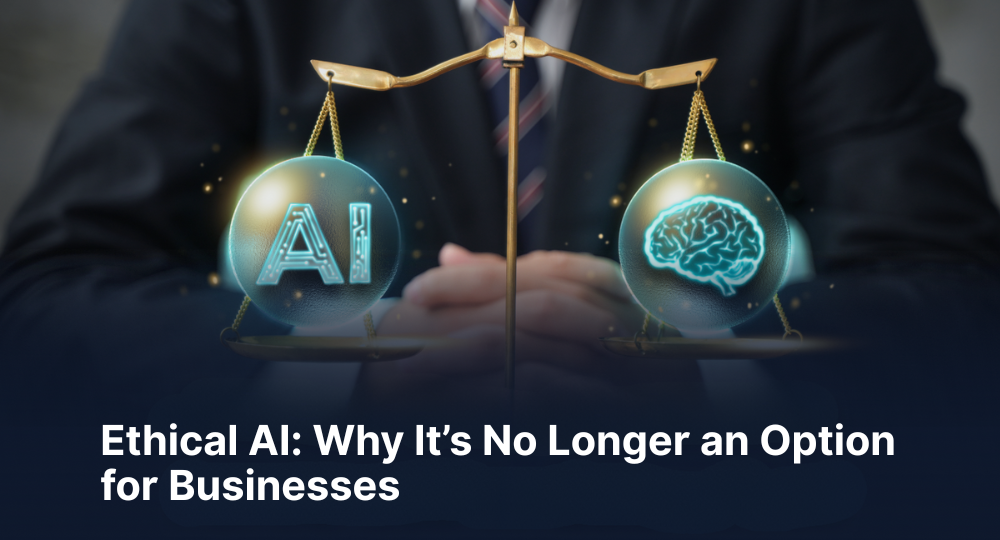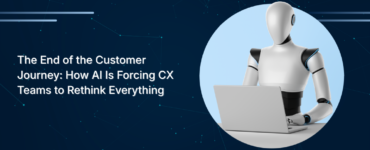Artificial Intelligence (AI) is no longer a futuristic concept—it’s an integral part of how businesses operate today. From personalized marketing and customer service chatbots to supply chain optimization and fraud detection, AI is transforming every industry. However, this technological evolution comes with a responsibility: to use AI ethically.
Importantly, ethical AI in business is no longer just a moral consideration; it’s a strategic necessity. Companies that fail to prioritize ethical practices in AI development and deployment risk legal consequences, loss of consumer trust, and reputational damage. Conversely, those who embed ethical principles into their AI strategies position themselves as trustworthy, future-ready organizations.
What is Ethical AI?
At its essence, ethical AI entails the creation and implementation of artificial intelligence systems that resonate with human values, fairness, and societal standards. It ensures that AI technologies are transparent, free from bias, and accountable, all while safeguarding privacy and fostering inclusivity. In doing so, the goal is to minimize harm and enhance benefits for all involved, including customers, employees, and the broader community.
The key term for this article—”Ethical AI”—is crucial for understanding why businesses should prioritize responsible practices in the deployment of AI solutions. By emphasizing ethical AI, companies can cultivate trust, reduce risks, and generate sustainable value.
The Growing Importance of Ethical AI in Business
1. Building Trust with Customers
People are becoming more aware of how their data is used, and they want companies to be honest about it. According to a recent survey, over 80% of people would stop interacting with a brand if they thought their personal information was being misused. This highlights how ethical AI helps ensure that customer data is handled carefully, which builds trust and loyalty.
For example, companies using AI to recommend products should make sure these tools give real value without taking advantage of users. By applying ethical AI principles, businesses show they care about protecting their customers—improving brand perception and encouraging long-term loyalty.
2. Avoiding Bias and Discrimination
One of the most significant challenges in implementing AI is avoiding bias. In many cases, machine learning models trained on biased datasets produce unjust outcomes. For instance, AI-driven hiring tools have been criticized for favoring specific demographics due to historical biases.
To tackle this, businesses must take proactive steps to identify and rectify such biases. This includes dataset audits, fairness evaluation of algorithms, and promoting diversity within development teams. Leading companies, such as Google and Microsoft, have already invested significantly in research and tools to detect and eliminate AI bias.
3. Regulatory Compliance
Governments across the globe are implementing stricter regulations concerning the use of AI. Notable examples include the European Union’s General Data Protection Regulation (GDPR) and the proposed Artificial Intelligence Act, which aim to promote ethical AI practices.
By integrating ethical AI principles early on, organizations are better positioned to meet future regulatory requirements. Moreover, proactively adhering to ethical standards can provide a competitive edge, emphasizing their commitment to corporate social responsibility.
4. Mitigating Risks and Avoiding Scandals
Unethical AI practices can spark public outrage and lead to financial setbacks. For example, Amazon’s failed hiring algorithm and the infamous Cambridge Analytica scandal with Facebook serve as warnings. These cases clearly show how ignoring ethical standards can damage reputations and break consumer trust.
To prevent this, companies must adopt ethical AI practices such as regular audits, maintaining documentation, and creating strong governance frameworks. As a result, businesses can identify and resolve issues before they evolve into crises.
Benefits of Adopting Ethical AI Practices
1. Enhanced Decision-Making
Ethical AI supports transparency and explainability, enabling better decisions. When stakeholders understand how AI systems work, they’re more likely to trust and act upon insights—leading to improved efficiency and strategy.
2. Increased Innovation
Focusing on ethics also fuels innovation. By responsibly solving real-world problems, businesses can reach diverse audiences. For instance, AI in healthcare can be inclusive and accessible to patients from all walks of life.
3. Talent Attraction and Retention
Top talent is drawn to organizations that value ethics and sustainability. By embracing ethical AI, companies attract professionals who share their values. Consequently, employees feel proud to contribute to positive societal change.
4. Long-Term Sustainability
Ethical AI helps build trust-based relationships, which are vital for long-term success. As consumer expectations rise, companies that embed ethics in AI are more likely to be industry leaders.
How Businesses Can Implement Ethical AI
Transitioning to ethical AI requires a strategic roadmap. Here are key steps businesses can take:
- Develop Clear Guidelines
Create ethical guidelines tailored to your organization’s goals and values, including data privacy, algorithmic fairness, and accountability. - Invest in Training
Educate teams on ethical AI through workshops and courses. This fosters a culture of awareness and responsibility. - Collaborate with Experts
Work with ethicists, legal advisors, and technologists. Their perspectives help identify blind spots and ensure ethical coverage. - Conduct Regular Audits
Review AI systems frequently to ensure compliance. Consider using third-party audits for added objectivity and credibility. - Engage Stakeholders
Involve customers, employees, and communities in ethical discussions. Their feedback ensures your AI aligns with societal expectations.
Ethical AI as a Competitive Advantage
Unethical AI practices, as seen in major tech scandals, can lead to huge losses and lasting reputational damage. However, implementing ethical AI serves as a safeguard. With regular audits, strong governance, and transparent practices, businesses can detect issues early and avoid escalation.
Ultimately, ethical AI is not just good practice—it’s a smart business strategy that drives innovation, protects trust, and ensures long-term success.




